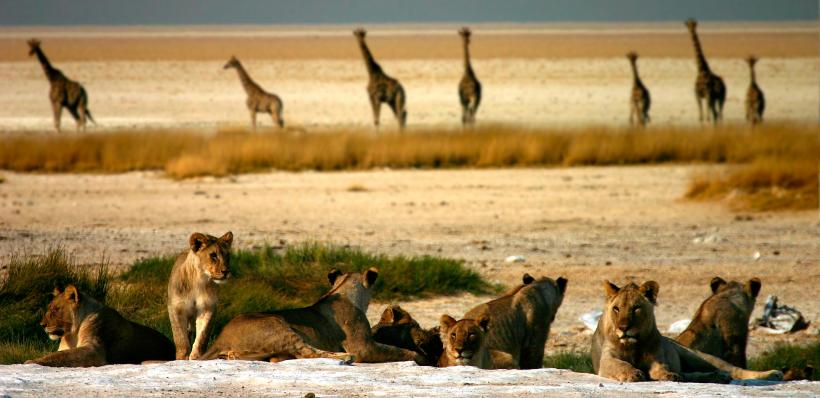
Article
Why southern african rural communities say hunting will never end in Africa
By Emmanuel Koro, Johannesburg, South Africa
10 Septembrer 2021
If the controversy over international hunting was a third world war between Western animal rights groups and the African hunting communities – animal rights groups would lose it on the ground. Yes, at the grassroots level.
The animal rights groups are good at waging the anti-international hunting propaganda war in the media. They spread propaganda to an uninformed international public. After ‘hitting’ the public with sensational anti-hunting propaganda they then ask for financial donations to stop international hunting.
Notably, they don’t dare confront on the ground, the African communities co-existing with wildlife and benefiting from international hunting. They will be defeated.
South Africa’s Mr Wilson Nemadzhilili has already fired the first shot against the Western animal rights’ anti-international hunting dictatorial campaigns.
“If animal rights groups continue talking about blocking us from international hunting, they must know that they are not welcome in the SADC (Southern Africa) region,” he said.
He is a member of South Africa’s Limpopo Province-based Makuya hunting community.
African hunting communities say they don’t want animal rights groups in Africa because their anti-hunting campaigns "are more harmful to both African wildlife and people than the harm caused by poachers".
The African hunting communities’ deadly weapons against the Western animal rights groups include the on-the-ground evidence that shows that international hunting is contributing towards wildlife and habitat conservation, including socio-economic development in rural Africa. Anyone who wants to prove this can travel to any hunting community in Southern Africa today and see for themselves.
One of the most effective long-range missiles against Western animal rights groups includes the need to inform innocent Western citizens not to continue being fooled into funding anti-international hunting campaigns because they harm African wildlife and people.
This year, SADC rural communities significantly increased their calls to denounce Western animal rights groups’ anti- international hunting campaigns.
Some of the representatives of hunting communities in Southern Africa have started a poster campaign with the message “Why hunting will never end in Africa.”
They argue that the significant wildlife and habitat conservation, as well as socio-economic development benefits that they continue to receive from hunting, are the reasons why hunting will never end in Africa.
“Wildlife hunting revenue has built a four-star lodge, community store, created employment and made us see the need to conserve not only wildlife but also its habitat,” said Claudia Nchunga of Botswana’s wildlife-rich Chobe District, Kavimba village in one of the posters. “Therefore, hunting is promoting conservation and development in our community.”
The posters have attracted the attention of hunting organisations that are buying them from as far as the USA to display pro-hunting messages from Africans. The posters not only have African voices but also Africans’ faces.
As long as international hunting continues, African rural communities foresee a ‘brighter future’ when the wellbeing of wildlife, its habitat and people is guaranteed.
“Nothing and no one can ever stop hunting in Africa, including Zimbabwe,” said a Masoka wildlife hunting community representative, Ishmael Chahukura. “The wildlife hunting revenue-built Masoka School has so far produced two medical doctors and more doctors and professionals will be produced in the future. The school also produced accountants, teachers, nurses, technicians and engineers etc. Wildlife revenue enables children born into poverty to escape from it; through education. These hunting benefits make us appreciate the need to conserve wildlife and its habitat.”
International hunting benefits also brought an unthinkable but positive change in attitude towards wildlife in neighbouring Zambia’s South Luangwa Province. Former poachers became absolute wildlife conservationists. Communities that used to resist family planning methods now embrace it, in order to avoid overpopulation that would displace wild animals from land set aside for wildlife conservation. Stunning!
Wildlife in Luangwa suffered heavy poaching that reduced big elephants herds from 90 000 in 1975 to about 1 000 by 1988. Following the introduction of international hunting in South Luangwa, the benefits from it impressively proved to be the magic bullet that ‘shot down poaching and significantly increased elephant population.’ According to Zambia’s Great elephant census of 2014-2015, 15 750 elephants were found in the natural boundaries of the South Luangwa National Park where they co-exist with rural communities.
From Namibia, we learn about a local conservancy’s fascinating response to international hunting benefits. If you want to be the number one enemy of African rural communities, tell them to stop using their land for cattle production.
Cattle are considered a status symbol in Africa, including Namibia. A family’s wealth or status is generally measured by how big a herd of cattle it owns.
Despite this, the Namibian wildlife (wild animals) recently ‘told’ Namibia’s Anabeb Conservancy residents to switch from using their land for cattle production to wildlife hunting. They all agreed! Why?
The comparatively more attractive benefits that the Anabeb Conservancy’s 200 households have been receiving from hunting over the years made it decide in 2019, to completely abandon a centuries-old African culture of using land to produce cattle.
"I remember poaching a big Kudu for meat”, said Anabe Conservancy Chairman, Ovehi Kasaona. "My friends were also poachers for meat, including my father and grandfather. My uncle even poached for rhino horn sale. In the past when we saw wildlife, we saw meat for the pot. Now we are associating wildlife with tourism businesses such as lodges that we have built, using money from wildlife hunting. This has created employment for people who work at the lodges and those involved with game drives."
So how harmful are the bans on international hunting? The Botswana 2014 international hunting ban imposed without national consultation by the former president Khama, is a good lesson on how harmful it is to ban hunting. The communities reacted angrily by conducting revenge killings on wildlife that was killing their livestock. In one incident four lions were killed, said Botswana’s former Minister of Environment, Wildlife and Tourism now the country’s ambassador to Washington, Kitso Mokaila.
In sharp contrast, the very same communities that poisoned lions never did so while benefiting from hunting, before the Khama Western animal rights groups influenced the international hunting ban. The lesson learnt is that hunting promotes wildlife and habitat conservation in Africa.
Despite being increasingly viewed to have seemingly transformed into an animal rights group over the years; judging by its unwanted worldwide campaign to shut down domestic ivory markets, the World Wide Fund For Nature admits in its Quota Setting Manual (1997), and on its website that if done sustainably hunting is not harmful to wildlife.
The UN Convention on International Trade in Endangered Species of Wild Fauna and Flora (CITES) allows international hunting of wildlife, including endangered species.
However, this doesn't have a detrimental impact on all the hunted species. Only 0.5-3% of the population is hunted as a management measure. Therefore, this demonstrates that hunting is a sustainable wildlife management off-take. Old males are exclusively hunted because they are no longer of reproductive value.
Clearly, the message from African rural communities that is growing in intensity is that "hunting is necessary for wildlife and habitat conservation in Africa".
In fact, African rural communities co-existing with wildlife say that if ever a ban on international hunting was to be dictatorially imposed in Africa, this would inevitably force them to turn national parks into crops and livestock production fields. A sad development that Western animal rights groups would forever be blamed for!
About the writer: Emmanuel Koro is a Johannesburg-based international award-winning independent environmental journalist who writes and has written extensively on environment and development issues in Africa

